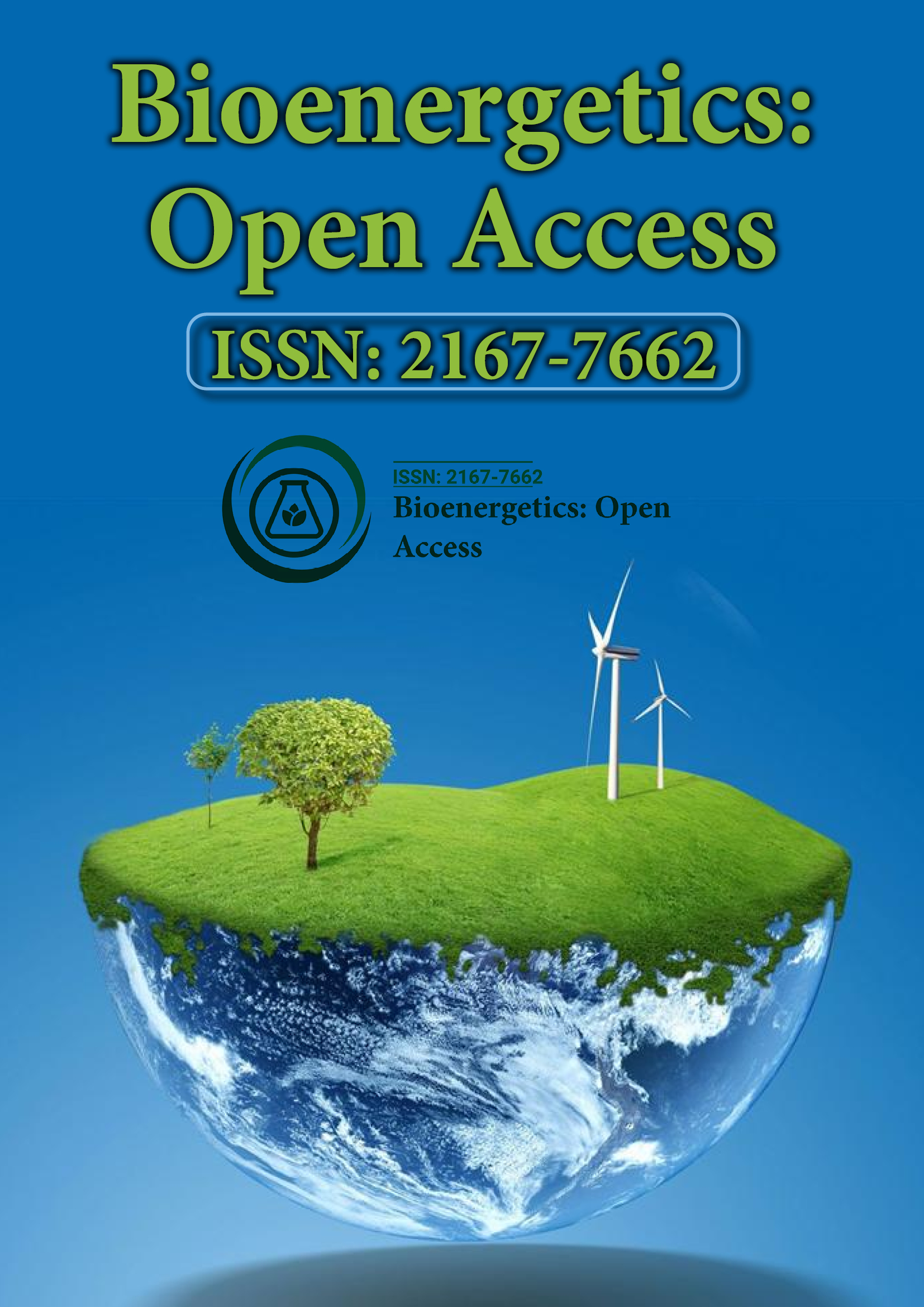Indexed In
- Open J Gate
- Genamics JournalSeek
- Academic Keys
- ResearchBible
- RefSeek
- Directory of Research Journal Indexing (DRJI)
- Hamdard University
- EBSCO A-Z
- OCLC- WorldCat
- Scholarsteer
- Publons
- Euro Pub
- Google Scholar
Useful Links
Share This Page
Journal Flyer

Open Access Journals
- Agri and Aquaculture
- Biochemistry
- Bioinformatics & Systems Biology
- Business & Management
- Chemistry
- Clinical Sciences
- Engineering
- Food & Nutrition
- General Science
- Genetics & Molecular Biology
- Immunology & Microbiology
- Medical Sciences
- Neuroscience & Psychology
- Nursing & Health Care
- Pharmaceutical Sciences
Commentary - (2023) Volume 11, Issue 6
Impact of Antibiotics on Lymphocyte Mitochondrial Bioenergetics
Nedel Luis*Received: 18-Oct-2023, Manuscript No. BEG-23-23849; Editor assigned: 20-Oct-2023, Pre QC No. BEG-23-23849 (PQ); Reviewed: 06-Nov-2023, QC No. BEG-23-23849; Revised: 13-Nov-2023, Manuscript No. BEG-23-23849 (R); Published: 21-Nov-2023, DOI: 10.35248/2167-7662. 23.11.241
Description
The advent of antibiotics revolutionized modern medicine, providing an effective means to combat bacterial infections and save countless lives. However, as we delve deeper into the complexities of human physiology, it becomes evident that these life-saving drugs may have broader impacts on the body than originally anticipated. One such area of interest is the effect of antibiotics on lymphocyte mitochondrial bioenergetics – a critical aspect of immune cell function. This article explores the intricate relationship between antibiotics and lymphocyte mitochondria, focusing on potential implications for immune system dynamics.
Mitochondria, often referred to as the powerhouse of the cell, play a central role in cellular energy production. Lymphocytes, a type of white blood cell integral to the immune system, rely heavily on mitochondrial bioenergetics to execute their functions effectively. The process involves the production of Adenosine Triphosphate (ATP), the cell's primary energy currency, through oxidative phosphorylation.
While antibiotics are designed to target bacterial cells, emerging research suggests that they may not be entirely selective in their actions. Studies have shown that some antibiotics have the potential to interfere with eukaryotic cells, including human cells, by disrupting mitochondrial function. This raises concerns about the unintended consequences of these drugs on immune cells like lymphocytes.
Tetracyclines, fluoroquinolones, and aminoglycosides are among the classes of antibiotics that have been implicated in mitochondrial dysfunction. These drugs may interfere with mitochondrial protein synthesis, compromise membrane integrity, and induce oxidative stress all factors that can impact lymphocyte bioenergetics.
The implications of antibiotics-induced mitochondrial dysfunction in lymphocytes extend beyond basic cellular processes. A compromised mitochondrial function may lead to decreased ATP production, impairing the lymphocytes' ability to carry out essential functions such as proliferation, cytokine production, and cytotoxic activity.
Furthermore, disturbances in mitochondrial bioenergetics can influence the balance between different lymphocyte subsets. For instance, a shift in the ratio of effector to regulatory T cells could have consequences for immune homeostasis and responsiveness to infections.
The interplay between antibiotics and lymphocyte mitochondrial bioenergetics may have broader implications for the immune system's ability to produce effective responses. Antibiotic-induced changes in mitochondrial function could potentially lead to a state of immunomodulation, altering the immune landscape and affecting the body's ability to fight off infections.
As our understanding of the complex interactions between antibiotics and lymphocyte mitochondria deepens, researchers and healthcare professionals must consider the broader implications for patient care. Future studies should focus on elucidating the specific mechanisms through which antibiotics impact mitochondrial function in immune cells and explore strategies to mitigate potential adverse effects.
In conclusion, the impact of antibiotics on lymphocyte mitochondrial bioenergetics represents a remarkable intersection of microbiology, immunology, and cellular biology. While antibiotics remain indispensable in treating bacterial infections, a nuanced understanding of their effects on the immune system is significant for optimizing therapeutic strategies and minimizing unintended consequences. As research in this field progresses, it may facilitate for the development of more targeted and selective antibiotics, ensuring that we can continue to harness the benefits of these life-saving drugs without compromising the intricate balance of our immune system.
Citation: Luis N (2023) Impact of Antibiotics on Lymphocyte Mitochondrial Bioenergetics. J Bio Energetics. 11:241.
Copyright: © 2023 Luis N. This is an open-access article distributed under the terms of the Creative Commons Attribution License, which permits unrestricted use, distribution, and reproduction in any medium, provided the original author and source are credited.
